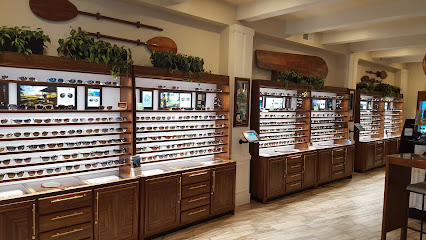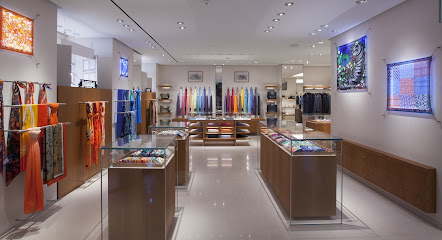
Maui: The Jewel of the Hawaiian Archipelago
Maui, the second-largest island in Hawaii, is a paradise with stunning landscapes and rich culture. Known for its world-famous beaches, lush rainforests, and breathtaking volcanic craters, Maui offers a perfect blend of adventure and relaxation. Whether you're sunbathing on the golden sands of Kaanapali Beach or exploring the scenic Hana Highway, there's something for everyone in this tropical haven. The island's beauty is matched by its fascinating history and vibrant local culture. Visit the historic town of Lahaina, once a bustling whaling village, now a charming area filled with shops, art galleries, and restaurants. Don't miss the chance to learn about Hawaiian traditions at the Old Lahaina Luau, where you can enjoy traditional Hawaiian cuisine and hula performances. For nature lovers, Haleakalā National Park is a must-see. Home to the dormant Haleakalā volcano, this park offers stunning sunrise views and numerous hiking trails through diverse ecosystems. If you're lucky, you might even spot some native Hawaiian wildlife. Additionally, the island’s underwater world is equally captivating. Snorkeling at Molokini Crater and Turtle Town provides an unforgettable glimpse into the vibrant marine life of Maui. Maui also offers a range of outdoor activities for the more adventurous traveler. From windsurfing on the north shore to zip-lining over lush valleys, the island is an adventure playground. Golf enthusiasts will appreciate the world-class golf courses set against stunning backdrops. And, of course, no visit to Maui is complete without experiencing its legendary sunsets, best viewed from a beach or a scenic lookout point.
Local tips in Maui
- Book your Haleakalā sunrise tour in advance; permits are limited and the view is unforgettable.
- Wear reef-safe sunscreen to protect Maui’s marine life while snorkeling or swimming.
- Travel the Road to Hana early in the day to avoid traffic and have more time to explore.
- Check local weather conditions before planning outdoor activities, especially during whale watching season from November to May.
- Visit local farmers' markets for fresh tropical fruits and unique handmade souvenirs.
Maui: The Jewel of the Hawaiian Archipelago
Maui, the second-largest island in Hawaii, is a paradise with stunning landscapes and rich culture. Known for its world-famous beaches, lush rainforests, and breathtaking volcanic craters, Maui offers a perfect blend of adventure and relaxation. Whether you're sunbathing on the golden sands of Kaanapali Beach or exploring the scenic Hana Highway, there's something for everyone in this tropical haven. The island's beauty is matched by its fascinating history and vibrant local culture. Visit the historic town of Lahaina, once a bustling whaling village, now a charming area filled with shops, art galleries, and restaurants. Don't miss the chance to learn about Hawaiian traditions at the Old Lahaina Luau, where you can enjoy traditional Hawaiian cuisine and hula performances. For nature lovers, Haleakalā National Park is a must-see. Home to the dormant Haleakalā volcano, this park offers stunning sunrise views and numerous hiking trails through diverse ecosystems. If you're lucky, you might even spot some native Hawaiian wildlife. Additionally, the island’s underwater world is equally captivating. Snorkeling at Molokini Crater and Turtle Town provides an unforgettable glimpse into the vibrant marine life of Maui. Maui also offers a range of outdoor activities for the more adventurous traveler. From windsurfing on the north shore to zip-lining over lush valleys, the island is an adventure playground. Golf enthusiasts will appreciate the world-class golf courses set against stunning backdrops. And, of course, no visit to Maui is complete without experiencing its legendary sunsets, best viewed from a beach or a scenic lookout point.
When is the best time to go to Maui?
Unmissable attractions to see
Great Wolf Lodge Water Park | Kansas City
Experience the ultimate family adventure at Great Wolf Lodge Water Park in Kansas City with exciting attractions and endless fun for all ages.
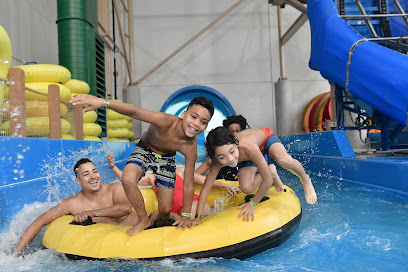
Jetty Park
Experience the best of Florida's coastline at Jetty Park in Fort Pierce, where sun-soaked beaches meet vibrant park life.
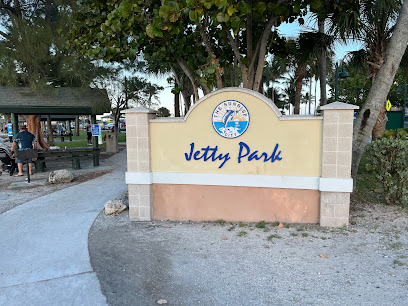
Captain Hook Cancun
Embark on a thrilling pirate adventure at Captain Hook Cancun, where dining meets entertainment on the stunning Caribbean Sea.
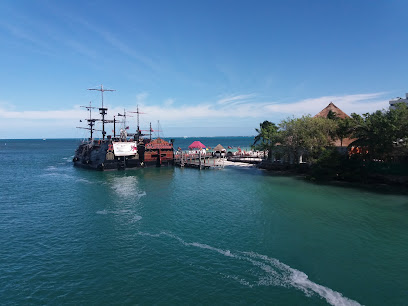
Navarre Beach Sea Turtle Conservation Center
Explore the Navarre Beach Sea Turtle Conservation Center: A Treasure Trove of Marine Life Education and Conservation Efforts Along Florida's Gulf Coast.
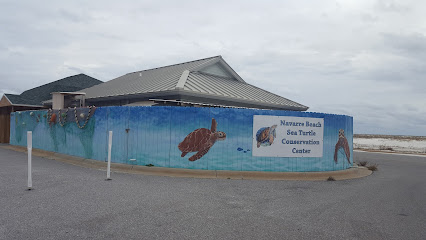
Polynesian Fire Luau in Daytona Beach
Discover the enchanting Polynesian Fire Luau in Daytona Beach, where vibrant culture meets thrilling performances and delicious island cuisine.
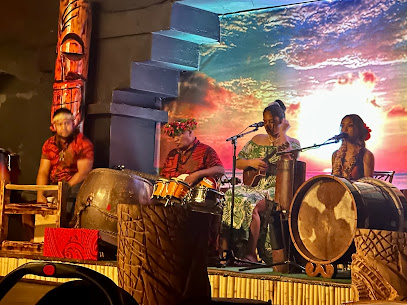
Amazement Square
Discover endless fun and education at Amazement Square, Lynchburg’s premier children’s museum and tourist attraction for families.
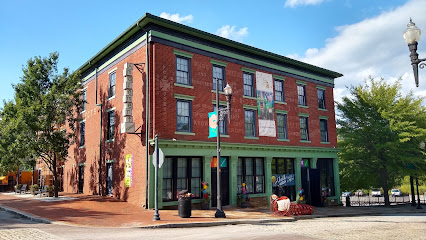
Maui's Dog House
Discover Maui's Dog House in Wildwood, NJ - the ultimate family-friendly destination for delicious hot dogs and burgers in a fun atmosphere.
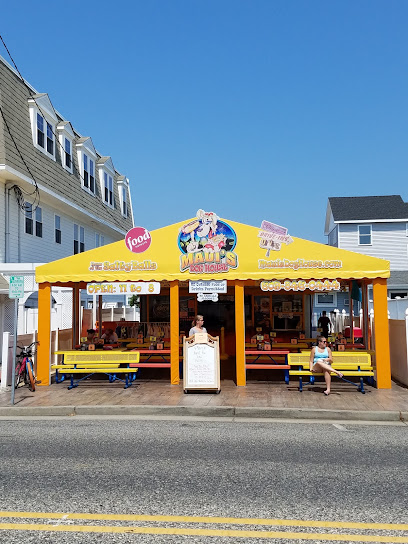
Jolly Roger Pirate Show
Join the Jolly Roger Pirate Show for an unforgettable night of adventure, entertainment, and delicious dining in the heart of Cancun's vibrant atmosphere.
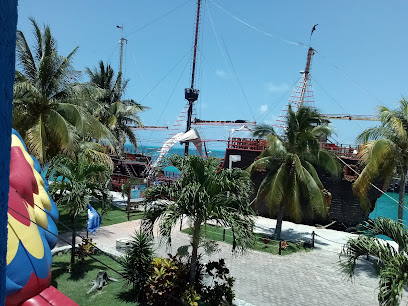
Lagoon Deer Park
Discover nature's tranquility at Lagoon Deer Park, a serene oasis in Sandusky, Ohio, where you'll encounter majestic deer and stunning landscapes.
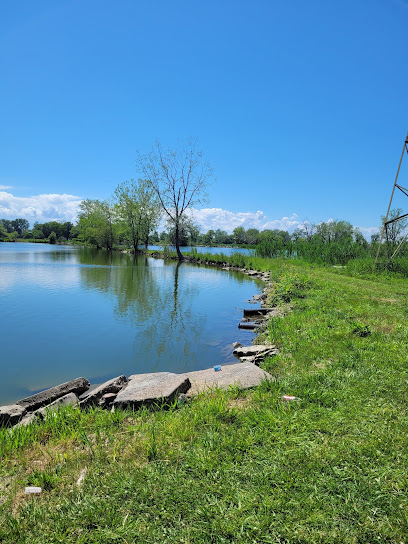
Luthy Botanical Garden
Discover the enchanting Luthy Botanical Garden in Peoria, where diverse flora, serene landscapes, and educational experiences await every visitor.
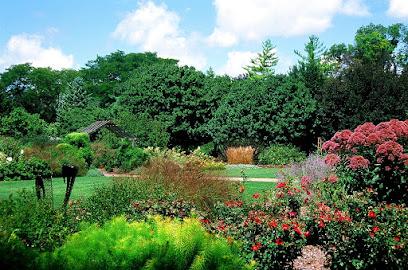
Wyland Gallery of the Florida Keys
Explore the enchanting Wyland Gallery in Key West, where marine art comes to life in stunning displays of creativity and conservation.
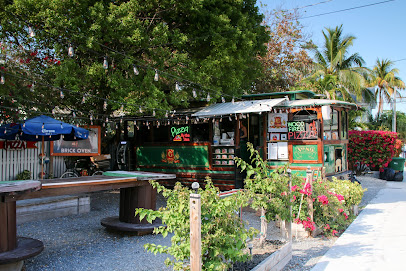
The Kampong, National Tropical Botanical Garden
Explore The Kampong, a serene botanical garden in Miami's Coconut Grove, showcasing exotic plants and nature's beauty in a tranquil setting.
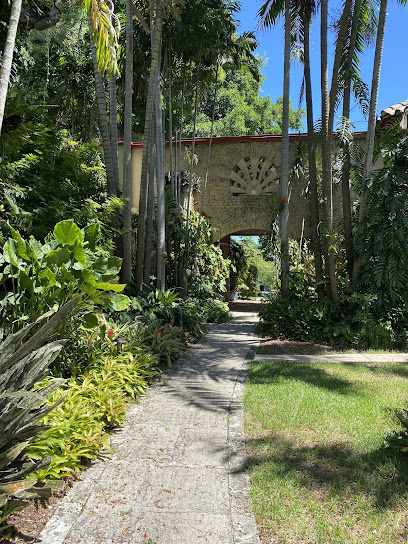
Sunspot Solar Observatory
Experience the marvels of the universe at Sunspot Solar Observatory, New Mexico's premier destination for solar science and astronomical exploration.
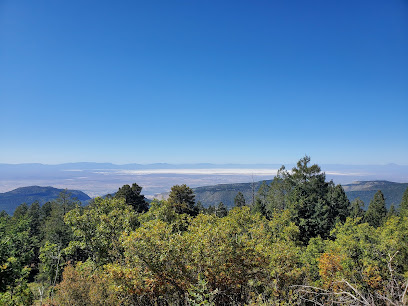
The Music City Rollin' Jamboree Country Music Comedy, Sing A-long Tour
Explore Nashville's unique charm on The Music City Rollin' Jamboree, a mix of country music and comedy that promises laughter and fun.
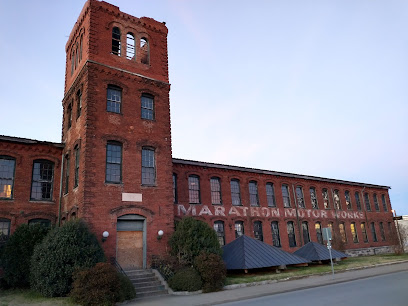
Captain Timothy Hill House
Discover the rich maritime history of Chincoteague at Captain Timothy Hill House, a charming museum showcasing the life of a local sea captain.
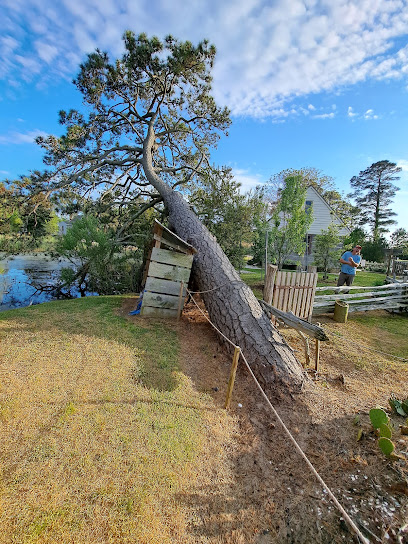
Markets, malls and hidden boutiques
Local Phrases
-
- HelloAloha
[ah-loh-hah] - GoodbyeA hui hou
[ah hoo-ee hoh-oo] - YesʻAe
[ah-eh] - NoʻAʻole
[ah-oh-leh] - Please/You're welcomeE ʻoluʻolu
[eh oh-loo-oh-loo] - Thank youMahalo
[mah-hah-loh] - Excuse me/SorryE kala mai
[eh kah-lah my] - How are you?Pehea ʻoe?
[peh-heh-ah oh-eh] - Fine. And you?Maikaʻi. A ʻoe?
[my-kah-ee ah oh-eh] - Do you speak English?ʻOlelo ʻoe i ka ʻōlelo haole?
[oh-leh-loh oh-eh ee kah oh-leh-loh hah-oh-leh] - I don't understandʻAʻole wau i lohe
[ah-oh-leh wow ee loh-heh]
- HelloAloha
-
- I'd like to see the menu, pleaseMakemake au e ike i ka papahana, e ʻoluʻolu
[mah-keh-mah-keh ow eh ee-keh ee kah pah-pah-hah-nah eh oh-loo-oh-loo] - I don't eat meatʻAʻole au i ʻai i ka ʻiʻo
[ah-oh-leh ow ee ah-ee ee kah ee-oh] - Cheers!Hauʻoli!
[how-oh-lee] - I would like to pay, pleaseMakemake au e uku, e ʻoluʻolu
[mah-keh-mah-keh ow eh oo-koo eh oh-loo-oh-loo]
- I'd like to see the menu, pleaseMakemake au e ike i ka papahana, e ʻoluʻolu
-
- Help!Kōkua!
[koh-koo-ah] - Go away!E hele aku!
[eh heh-leh ah-koo] - Call the Police!Kele aku i ke kānāwai!
[keh-leh ah-koo ee kay kah-nah-wye] - Call a doctor!Kele aku i ke kauka!
[keh-leh ah-koo ee kay kow-kah] - I'm lostWau i ʻoihanai
[wow ee oy-hah-nah-ee] - I'm illWau maʻi
[wow mah-ee]
- Help!Kōkua!
-
- I'd like to buy...Makemake au e kūʻai...
[mah-keh-mah-keh ow eh koo-ah-ee] - I'm just lookingʻO wau wale nō e nānā
[oh wow wah-leh noh eh nah-nah] - How much is it?Heaha kēia?
[heh-ah-hah kay-ee-ah] - That's too expensiveʻO ka nui kēia
[oh kah noo-ee kay-ee-ah] - Can you lower the price?Hiki iāʻoe ke kīʻai i ka uku?
[hee-kee ee-ah oh-eh keh kee-ah-ee ee kah oo-koo]
- I'd like to buy...Makemake au e kūʻai...
-
- What time is it?He aha ka manawa?
[heh ah-hah kah mah-nah-wah] - It's one o'clockʻEkahi wale nō
[eh-kah-hee wah-leh noh] - Half past (10)ʻUmi me ka hapaha
[oo-mee meh kah hah-pah-hah] - MorningKakahialiʻi
[kah-kah-hee-ah-lee-ee] - AfternoonAuinalā
[ow-ee-nah-lah] - EveningAhiahi
[ah-hee-ah-hee] - YesterdayPōʻino
[poh-ee-noh] - TodayKēia lā
[kay-ee-ah lah] - TomorrowʻApōpō
[ah-poh-poh] - 1ʻEkahi
[eh-kah-hee] - 2ʻElua
[eh-loo-ah] - 3ʻEkolu
[eh-koh-loo] - 4ʻEhā
[eh-hah] - 5ʻElima
[eh-lee-mah] - 6ʻEono
[eh-noh-noh] - 7ʻEhiku
[eh-hee-koo] - 8ʻEwalu
[eh-wah-loo] - 9ʻEiwa
[eh-ee-vah] - 10ʻUmikūmākolu
[oo-mee-koo-mah-koh-loo]
- What time is it?He aha ka manawa?
-
- Where's a/the...?ʻAuhea ka...?
[ow-heh-ah kah] - What's the address?He aha ke kūkākūkā?
[heh ah-hah keh koo-kah-koo-kah] - Can you show me (on the map)?Hiki iāʻoe ke hoʻololi iaʻu (ma ka palapala ʻāina)?
[hee-kee ee-ah oh-eh keh hoh-oh-loh-lee ee-ah-oo mah kah pah-lah-pah-lah eye-nah] - When's the next (bus)?ʻAia i hea ka hopena (ʻaʻole)?
[eye-ah ee heh-ah kah hoe-peh-nah ah-oh-leh] - A ticket (to ....)He kāleka (i...)
[heh kah-leh-kah ee]
- Where's a/the...?ʻAuhea ka...?
History of Maui
-
The island of Maui, known as the 'Valley Isle,' was first settled by Polynesians over a thousand years ago. These early settlers established thriving communities, developed sophisticated agricultural systems, and built impressive heiau (temples). They lived in harmony with the land, practicing sustainable fishing and farming techniques that have left an enduring legacy on the island.
-
Maui holds a significant place in Hawaiian mythology, named after the demigod Maui who is said to have fished the Hawaiian Islands out of the sea. According to legend, Maui slowed down the sun to lengthen the days, helping his mother to dry her kapa (bark cloth). These stories are integral to the cultural fabric of the island, symbolizing the deep connection between the Hawaiian people and their environment.
-
In 1778, British explorer Captain James Cook became the first European to record contact with the Hawaiian Islands. Although he did not land on Maui, his arrival marked the beginning of increased Western interest and eventual colonization. The subsequent years saw the arrival of traders, whalers, and missionaries, profoundly altering the island’s social and economic landscape.
-
In the late 18th century, King Kamehameha I sought to unify the Hawaiian Islands under his rule. Maui was a central battleground in this quest. In 1790, the Battle of Kepaniwai took place in the Iao Valley, where Kamehameha's forces clashed with Maui's warriors. The battle was fierce, leaving many casualties, but ultimately resulted in Kamehameha’s victory and the eventual unification of the islands.
-
The arrival of Protestant missionaries in the early 19th century brought significant changes to Maui. They established schools, churches, and introduced Western education and Christianity to the local population. The missionaries’ influence extended to social, cultural, and political aspects of life on Maui, leading to the adoption of Western customs and the decline of traditional Hawaiian practices.
-
The mid-19th century saw the rise of the sugarcane industry on Maui. Plantations sprang up across the island, transforming the economy and landscape. This period attracted a diverse workforce from China, Japan, Portugal, and the Philippines, creating a multicultural society that still characterizes Maui today. The industry dominated the island’s economy until its decline in the late 20th century.
-
During World War II, Maui played a strategic role in the Pacific theater. The island hosted military bases and training facilities, including Camp Maui, which was home to the 4th Marine Division. The war brought an influx of military personnel and resources, significantly impacting the local economy and infrastructure. Remnants of this era, such as bunkers and airstrips, can still be found on the island.
-
The latter half of the 20th century saw Maui's transformation into a major tourist destination. The development of resorts, hotels, and tourist attractions revitalized the island’s economy. Today, Maui is renowned for its stunning natural beauty, outdoor activities, and rich cultural heritage, attracting millions of visitors from around the world each year. The tourism industry continues to evolve, balancing economic growth with the preservation of the island’s unique environment and traditions.
Maui Essentials
-
Maui is accessible by air, with Kahului Airport (OGG) being the primary airport. It serves direct flights from major U.S. cities, including Los Angeles, San Francisco, Seattle, and others. Additionally, there are inter-island flights from Honolulu, the capital of Hawaii. Once you arrive at Kahului Airport, you can reach your accommodation via rental car, taxi, shuttle service, or public bus.
-
Maui offers various transportation options. Rental cars are popular for their flexibility, but book in advance during peak seasons. Maui Bus provides public transportation with routes covering major towns and attractions. Taxis and ride-sharing services like Uber and Lyft are available but can be costly for long distances. Biking is another option, especially for short trips in bike-friendly areas like Lahaina and Kihei.
-
The official currency is the U.S. Dollar (USD). Credit and debit cards are widely accepted in hotels, restaurants, and shops. ATMs are plentiful, but it’s advisable to carry some cash for smaller establishments and remote areas. Traveler’s checks are less commonly used but can be cashed at most banks and hotels.
-
Maui is generally safe for tourists, but exercise standard precautions. Petty theft can occur, particularly in tourist hotspots like Lahaina and Kihei. Avoid leaving valuables in parked cars and be cautious in isolated areas. Some areas, such as parts of Kahului and Wailuku, have higher crime rates, so be extra vigilant there. Always stay informed about local conditions and heed any warnings.
-
In case of an emergency, dial 911 for ambulance, police, or fire services. Maui Memorial Medical Center in Wailuku is the main hospital for serious medical issues. Pharmacies are available in most towns for minor health concerns. Always have travel insurance that covers medical emergencies. For natural disasters like hurricanes, follow local advisories and have an emergency kit ready.
-
Fashion: Do wear casual, breathable clothing suitable for tropical weather. Avoid overly revealing swimwear when not at the beach. Religion: Do respect local customs and be mindful when visiting religious sites. Public Transport: Do be courteous and give up your seat to elderly or disabled passengers. Don’t eat or drink on the bus. Greetings: Do greet people with a friendly 'Aloha'. Eating & Drinking: Do try local Hawaiian dishes such as poke and laulau. Don’t refuse food offerings, as it is considered impolite.
-
To experience Maui like a local, visit farmers' markets where you can find fresh produce and local crafts. Participate in community events and cultural festivals to immerse yourself in Hawaiian traditions. Try dining at local 'plate lunch' spots for authentic Hawaiian meals. Respect 'kapu' (sacred) sites and learn about their cultural significance. Engage with locals, who are often eager to share their knowledge about the island.
Nearby Cities to Maui
-
Things To Do in Peoria
-
Things To Do in Bloomington
-
Things To Do in Davenport
-
Things To Do in Decatur
-
Things To Do in Muscatine
-
Things To Do in Champaign
-
Things To Do in Joliet
-
Things To Do in Aurora
-
Things To Do in Naperville
-
Things To Do in Bolingbrook
-
Things To Do in Rockford
-
Things To Do in Elgin
-
Things To Do in Iowa City
-
Things To Do in Oak Lawn
-
Things To Do in Schaumburg











